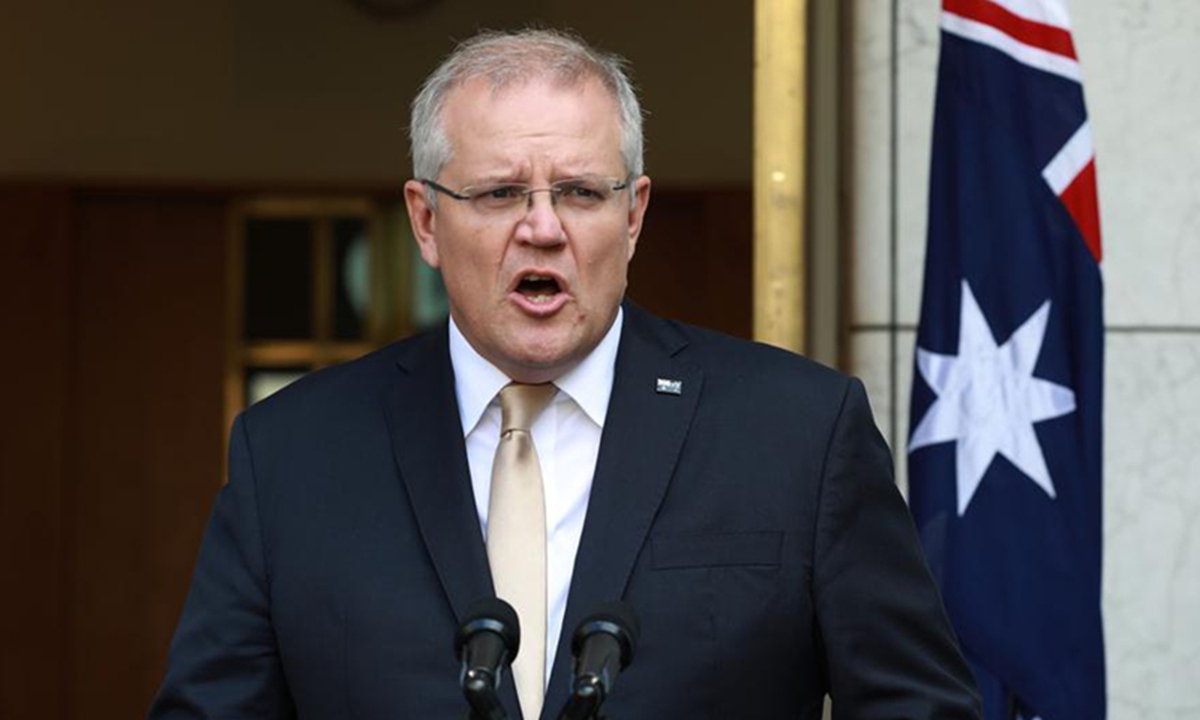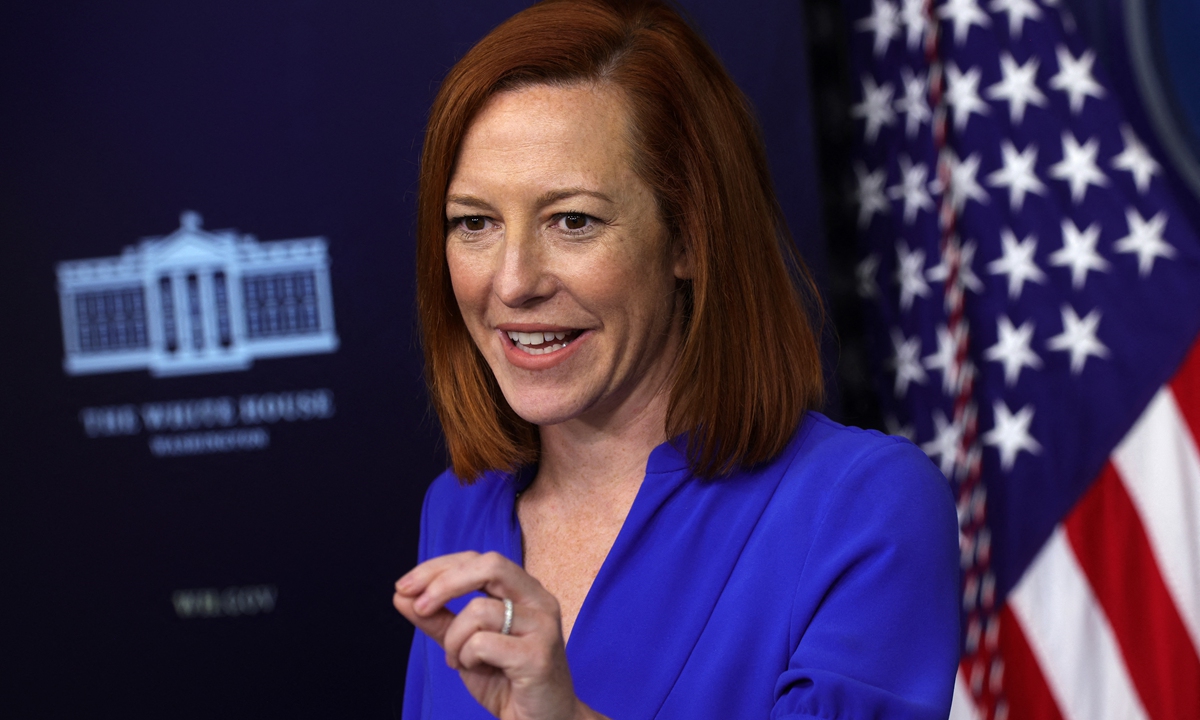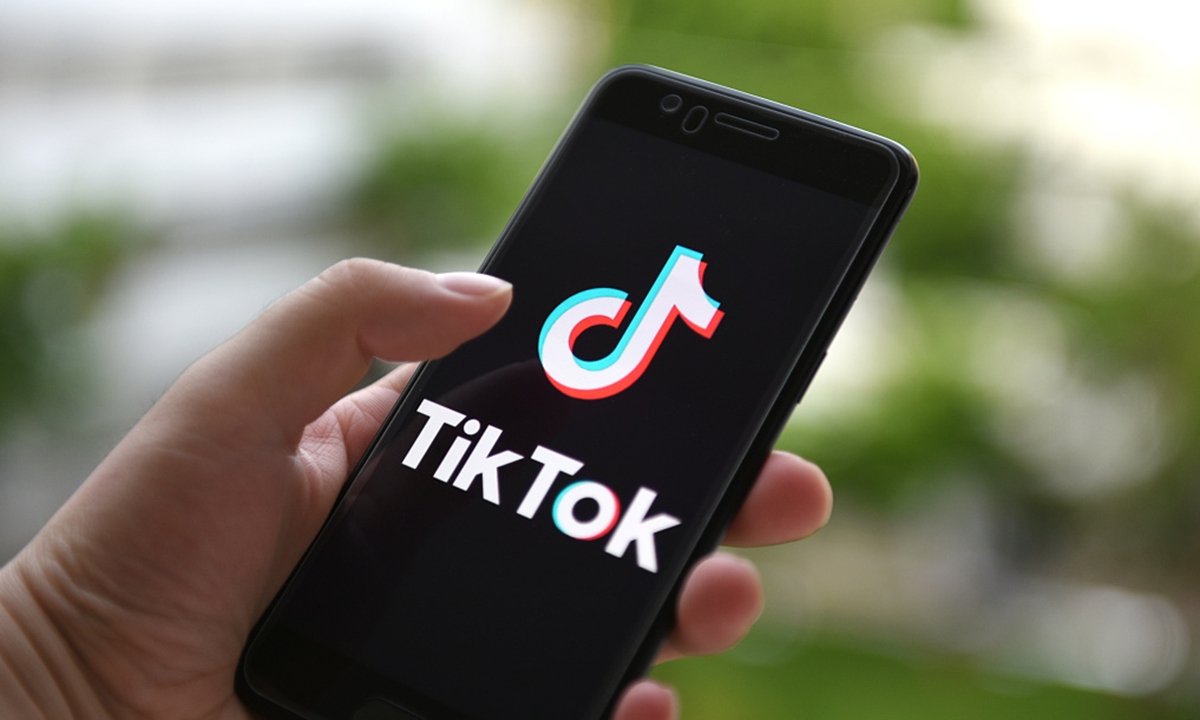Some Biden administration officials are pushing for the sale of TikTok's US branch, citing the so-called security concerns over the company's operations in the country, the Wall Street Journal reported on Monday. One couldn't help but raise the suspicion that behind the so-called reasons of protecting US national security is the untold, hidden intention to seize Chinese technology. While a forced sale may just be a proposal for discussion by the Committee on Foreign Investment in the US, there is no denying that TikTok has been increasingly cornered in the US. This is not because its commercial operation has run into problems, but because it has faced growing political coercion from anti-China politicians in Washington. At least 15 states across the US have banned TikTok on government devices in the past month. Many federal agencies, including the White House and the departments of defense, homeland security and state, have already banned TikTok from government-owned devices. The latest funding bill passed by the US Congress last week includes a measure banning TikTok from devices used by federal employees. Two weeks ago, anti-China senators including Marco Rubio announced a legislation bid to block all transactions from any social media company "in or under the influence" of China and Russia, which could kick TikTok out of the US if the bill were to become law. All of these bans or legislative efforts are on the grounds of the so-called national security threat. Without any solid evidence or proof, the charge has been frequently used by the US government in cracking down on TikTok for quite some time. Former US President Donald Trump once attempted to force ByteDance to sell TikTok to US companies two years ago, but a US federal judge blocked the attempt, and further bids to argue the case were dropped when the Biden administration came to power. Yet, as TikTok has gained a larger market share amid a challenging business climate, there has been a menacing resurfacing of national security risks, which offers a glimpse into the deterioration of regulatory environment in the US. It is doubtful how much US national security is at stake that precipitated Washiington's crackdown on TikTok. Instead, it looks increasingly like a robbery of others' technology. A report published by GroupM, a media buying agency owned by WPP, estimated earlier this month that TikTok doubled its advertising revenues in 2022, becoming the only big social media platform to garner rising advertising revenues this year, beating rivals like Meta and Snap. What Washington cares about is not whether TikTok is free of security concerns, but the sheer commercial interests behind the rapid rise of TikTok. To put it bluntly, the US government never appeared interested in offering any solution to the so-called security problem. The US use of government power to stigmatize or try to rob TikTok is nothing but a Washington driven effort to maintain its global hegemony. If anything, unfair treatments the company received in the US market have been sufficient enough to hurt its reputation and increase the political risks in the eyes of the investors and advertisers, which will inevitably squeeze the country's future development space. To put it another way, it shows that Washington simply cannot allow a foreign company to grow competitive enough to challenge its American peers. The reason why TikTok has been targeted by the US is because it represents the rise of a new algorithmic technology that has enabled it to become the most successful app in the world in recent years. This is the representative of Chinese high-tech companies gaining an advantage in international markets through their own innovations.
Indeed, when the former Trump administration tried to push through a forced sale of TikTok in 2020, China introduced a new export regulation requiring Beijing's approval for certain technology transfers, including recommendation algorithms. And it is beyond doubt that China will protect its own core technologies and will not allow technology robbery by any party.

China urges US to correct wrongdoings as WTO rules steel, aluminum tariffs violate its principles
US hegemony: the culprit of Ukraine crisis, benefiting from Ukraine’s misfortune


















